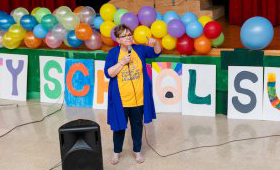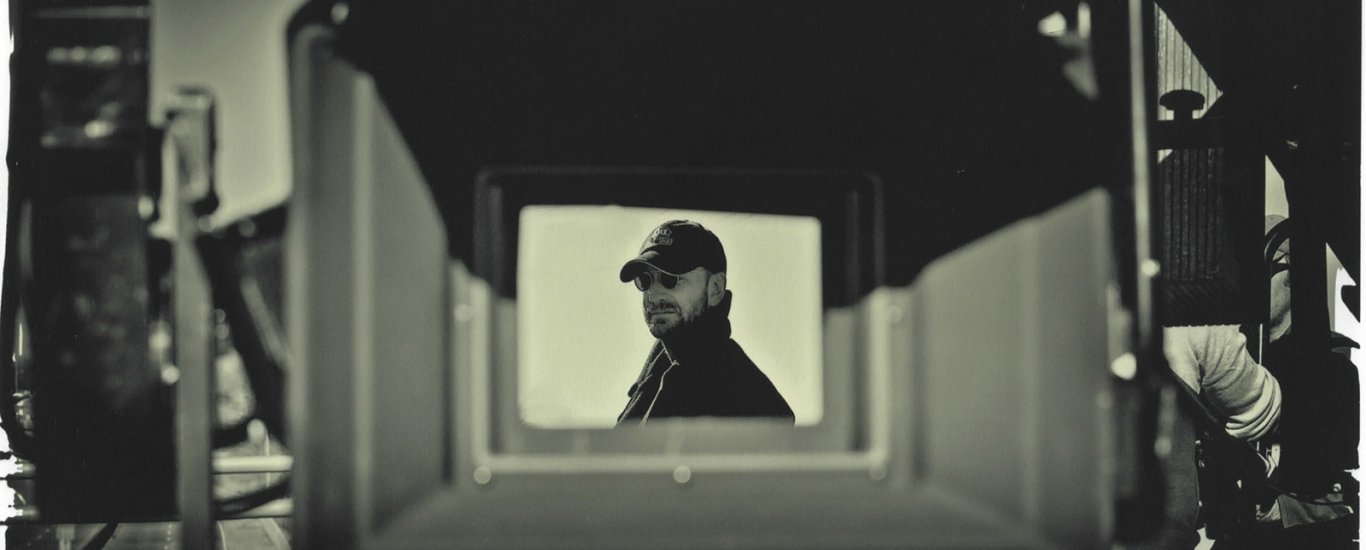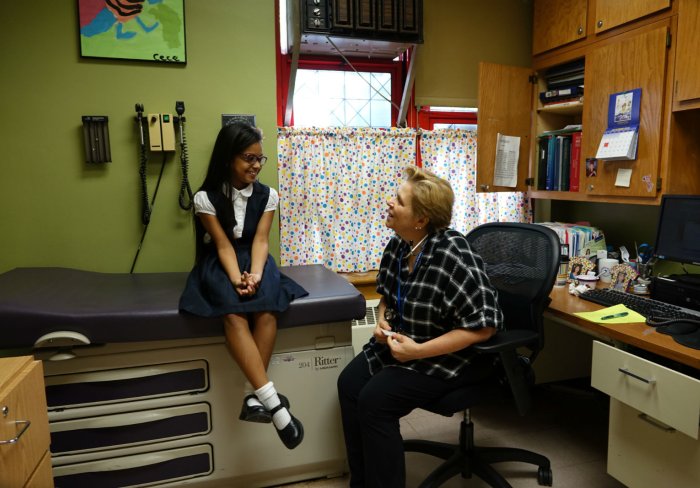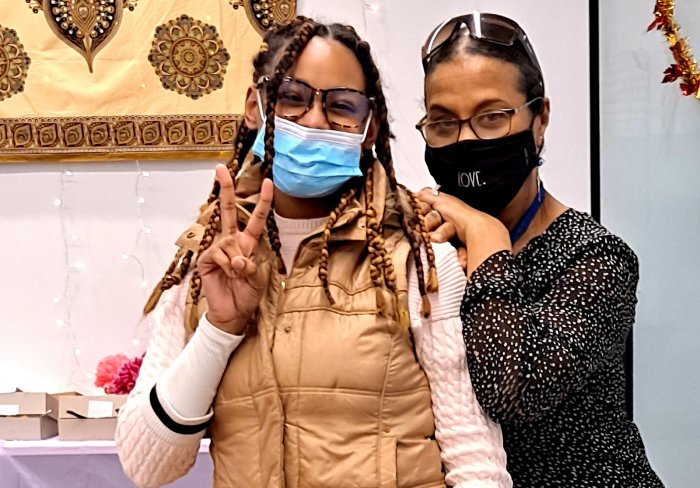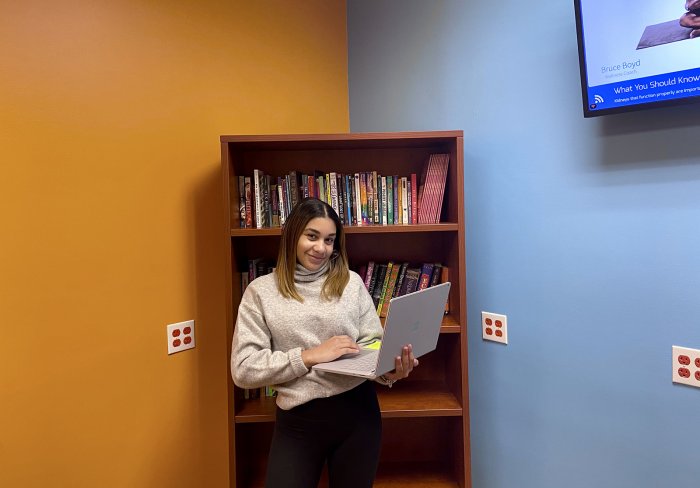As a producer or director of nearly 100 productions and counting, Steven Soderbergh has long had a jam-packed schedule. But for over a decade he has found time to meet with Children’s Aid staff, better understand the complexities of child poverty in New York City, and identify how he can help us move our mission forward.
Steven has provided financial support and gifts from his movie sets, visited our sites, and even directed a video for Children’s Aid — pro bono. This year, Steven’s commitment reached new heights through the release of his recent movie series, “COMMAND Z.” The series is set in a dystopian 2053 where everything from income inequality to climate change has wreaked global havoc. A group of employees working for the artificial intelligence recreation of a once-human big tech CEO played by Michael Cera travel back in time to fix problems in 2023 — the last year to alter the course of catastrophic world events. Fittingly, Children’s Aid — an organization uprooting the causes of and providing solutions to child poverty and income inequality — was designated as a beneficiary of the series’ web streaming fees.
We interviewed Steven in September about his admiration for Children’s Aid. Here are some of the highlights:
What motivates your dedication to Children’s Aid?
When I relocated to New York City, my wife and I looked for organizations hyper-focused on local issues and specifically local education for young people. Children’s Aid seemed to be the perfect organization to support in that it offered such a holistic view of the issue of improving opportunities. The organization does a good job of realizing there are many different points in the life of a young person who is growing up in difficult circumstances. It’s not just if we do this one thing that will solve the problem; it is a complex living thing and requires constant attention and fluidity of thought and action to adapt to circumstances that are constantly changing on a personal level and on a neighborhood city level. I’ve been happy to be associated with Children’s Aid because one of the things I do to judge whether or not an organization is successful in fulfilling its mandate is to consider what New York be like — what would have happened to many thousands of young people — if Children’s Aid didn’t exist. It would be a demonstrably terrible outcome, and my only concern always is Children’s Aid continues.
Why were we chosen as a beneficiary of “COMMAND Z”?
The company behind “COMMAND Z” is a nonprofit, and it was my idea for the proceeds of the show to go to Children’s Aid primarily — my closest relationship. People are being squeezed more, and I worry that today the first thing people look at is their budgets and think they need to take care of themselves first instead of others that have less. My idea was to use “COMMAND Z” and its message and platform to draw attention to the issues that are treated in the show and to make people aware of Children’s Aid, because I think a lot of people might want to get involved.
What did it mean to your team that this series was supporting an important cause?
With “COMMAND Z,” there was synchronicity and pleasure in knowing what the ultimate purpose and intention of the show was, which is to draw focus on the cause. There is also something when you take the profit motive out of it. Let’s face it, the experience is a lot purer providing the reason you’re there is because of the story you want to tell and the focus you want to redirect.
What Children’s Aid projects are you considering for the future?
I start shooting a movie next week. Once that is done, I want to come in, sit down, and talk to everyone at Children’s Aid and find out what we are thinking going forward and what the three-to-five-year plan is as of 2023. Ask questions like: “How is it going,” “What is working,” “What is not working?” “What do you want to do that you can’t do?” “What are you doing that you would like to rethink and rebuild?” And then a ticking of the boxes on “How?”
What is a piece of advice you’d give to a Children’s Aid young person?
If we are talking about a young person in a school that has access to Children’s Aid, they’ve already won. That is the either-or in this situation that can determine a child’s future if they’re in a system that is attached to Children’s Aid. They’re already teed up to succeed, and I would encourage them to take everything that Children’s Aid has to offer

